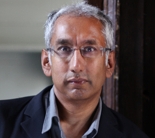Failure of multiculturism stems Terrorism? |
Six years ago today, on July 7, 2005, Islamist suicide bombers attacked London’s transit system. They blew up three subway trains and a bus, killing 52 people and leaving a nation groping for answers.
In one sense the meaning of 7/7 is as clear to Britons as that of 9/11 is to Americans. It was a savage, brutal attack intended to sow mayhem and terror. Yet whereas 9/11 was the work of a foreign terrorist group, 7/7 was the work of British citizens. The question that haunts London, but that Washington has so far barely had to face, is why four men born and brought up in Britain were gripped by such fanatic zeal for a murderous, medieval dogma.
British authorities have expended much effort in seeking to understand how the 7/7 terrorists acquired their perverted ideas and became “radicalized.” In the immediate wake of the attacks, much ink was spilled over the role of extremist preachers and radical mosques. More recently, the focus has shifted to universities as recruitment centers for terrorists.
But this obsession with radicalization misses the point. The real question is not how people like Mohammad Sidique Khan, the leader of the 7/7 bombers, came to be radicalized, but why so many young men, who by all accounts are intelligent, articulate and integrated, come to find this violent, reactionary ideology so attractive. To answer it, we need to look not at extremist preachers or university lecturers but also at public policy, and in particular the failed policy of multiculturalism.
Multiculturalism has become a fraught issue throughout Europe in recent years. A rancorous chorus of populist politicians, like Geert Wilders in the Netherlands and Jimmie Akesson in Sweden, have made major electoral gains by stoking fears about multiculturalism. Mainstream politicians have joined in, too. Prime Minister David Cameron of Britain and Chancellor Angela Merkel of Germany have recently made deeply critical speeches, and the Dutch government decided last month to dump a decades-old policy of multiculturalism.
The real target of much of this criticism, however, is not multiculturalism but immigration and immigrants — especially Muslims. Mr. Wilders, leader of the Freedom Party, the third largest in the Dutch Parliament, has campaigned for an end to all non-Western immigration, a ban on mosque building and the outlawing of the Koran. Mr. Akesson, whose far-right Sweden Democrats shocked the nation by winning 20 seats in last year’s parliamentary elections, denounces immigration as the biggest threat facing Sweden since World War II. Centrists have responded not by challenging such prejudice but by appropriating the right’s arguments in an effort to hold on to votes.
Part of the difficulty in thinking about multiculturalism is that it has come to have two meanings that are rarely distinguished. On one hand, it refers to a society made diverse by mass immigration, and on the other to the policies governments employ to manage such diversity. The failure to distinguish between these meanings has made it easier to use attacks on multiculturalism as a means of blaming minorities for the failure of government policy.








 Kenan Malik Born in India, broughtup in Manchester and now lives in London, Malik is a writer, lecturer, broadcaster (and occassional troublemaker!). He is Senior Visting Fellow at the Department of Political, International and Policy Studies at the University of Surrey besides being a presenter of Analysis, BBC Radio 4's flagship current affairs programme and a panelist on the MoralMaze. He is the author of “From Fatwa to Jihad: The Rushdie Affair and ItsLegacy.”
Kenan Malik Born in India, broughtup in Manchester and now lives in London, Malik is a writer, lecturer, broadcaster (and occassional troublemaker!). He is Senior Visting Fellow at the Department of Political, International and Policy Studies at the University of Surrey besides being a presenter of Analysis, BBC Radio 4's flagship current affairs programme and a panelist on the MoralMaze. He is the author of “From Fatwa to Jihad: The Rushdie Affair and ItsLegacy.”
Post new comment